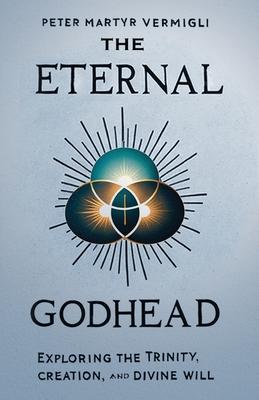'The Eternal Godhead: Exploring the Trinity, Creation, and Divine Will' delves into the profound mysteries of the Christian faith, offering a comprehensive exploration of the nature of God, the concept of the Trinity, and the divine act of creation. Peter Martyr Vermigli masterfully navigates through theological discourse, beginning with an examination of the divine nature and attributes of God, emphasizing the incomprehensible essence of God that can be partially understood through His actions and titles, such as Jehovah, a name signifying the self-existing, eternal nature of God.
Vermigli elaborates on the significance of understanding God's attributes-mercy, justice, omnipotence, and holiness-through the lens of the Holy Scriptures. He provides a thorough analysis of the Tetragrammaton and its profound implications for understanding God's eternal presence and sovereignty. The book further explores the divine will and God's interaction with His creation, illustrating how the biblical narratives of deliverance and providence reveal God's nature and intentions for humanity.
In his exploration of the Trinity, Vermigli addresses the complex relationship between the Father, the Son, and the Holy Spirit, clarifying the distinct persons within the Godhead while maintaining their unity in essence. He skillfully defends the divinity of Christ and the Holy Spirit against contemporary theological challenges, drawing from both Old and New Testament scriptures to affirm their coequal status with the Father.
The work also delves into the mystery of creation, offering insights into the act of bringing the universe into existence ex nihilo (out of nothing) and the special creation of angels. Vermigli discusses the roles and natures of angels, their interaction with the physical world, and their service in the divine plan.
'The Eternal Godhead: Exploring the Trinity, Creation, and Divine Will' stands as a testament to Vermigli's profound scholarship and his commitment to orthodox Christian doctrine. Through meticulous argumentation and a deep reverence for scriptural authority, he invites readers into a deeper understanding of the nature of God, the mystery of the Trinity, and the marvels of creation. This work is an invaluable resource for theologians, scholars, and anyone seeking to deepen their knowledge of Christian theology and the inexhaustible richness of the Godhead.
Peter Martyr Vermigli (1499-1562) was a significant figure in the Reformation, known for his contributions to Protestant theology and his role in the development of the Reformed tradition. Born in Florence, Italy, Vermigli entered the Augustinian order in his early youth and received a thorough education in philosophy and theology, which laid the groundwork for his later work.
Vermigli was deeply influenced by the writings of Martin Luther and other Reformers, which led to a gradual shift in his theological views towards Protestantism. This shift resulted in his leaving Italy for safer, more receptive environments in Northern Europe, where he could freely express and develop his Reformed theological perspectives.
Throughout his career, Vermigli held several important positions. He served as a professor of theology in Strasbourg, where he became a friend and colleague of Martin Bucer, another prominent Reformer. Later, he moved to England, where he was appointed Regius Professor of Divinity at the University of Oxford during the reign of Edward VI. Vermigli played a key role in the English Reformation, influencing the development of the Book of Common Prayer and the Thirty-Nine Articles, foundational texts for the Church of England.
